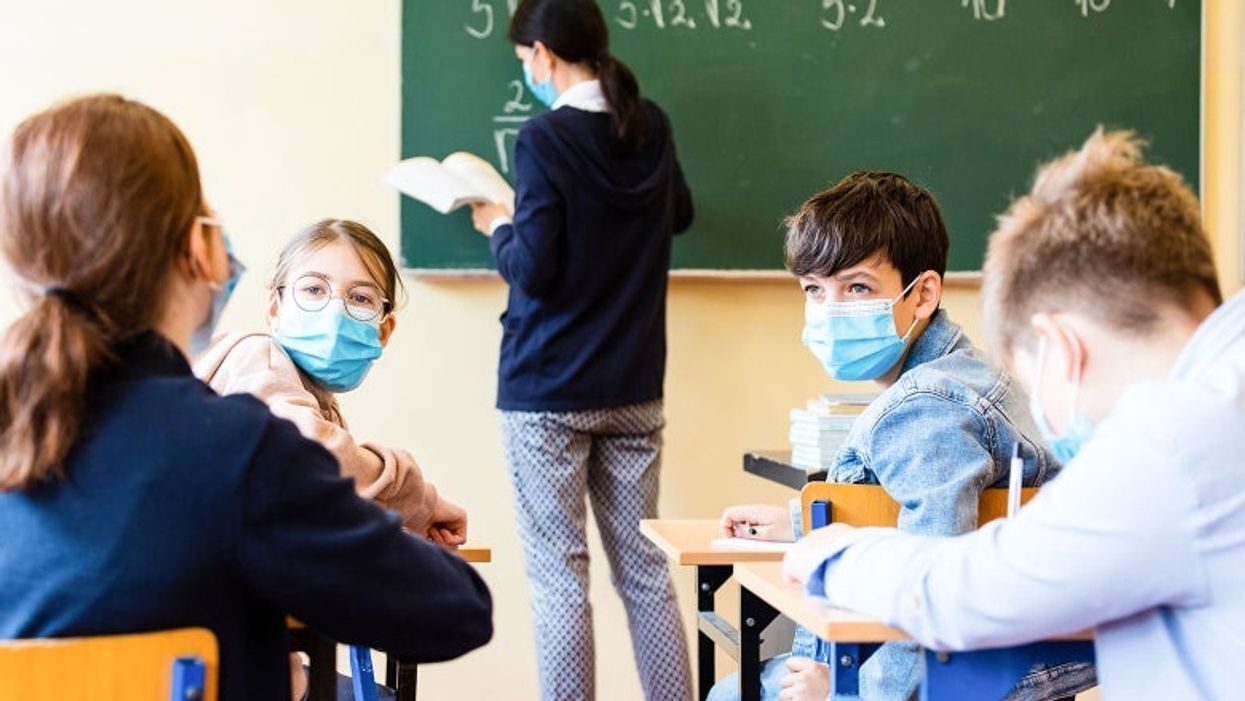
MOBILE, Alabama -- As the coronavirus surges across the Deep South, my sixth-grader's school has set a mid-August reopening. Like so many other parents, I'm dogged by uncertainty, wrestling with choices and consequences, trying to plot a path through a frightening thicket of unknowns: How vulnerable are children? Do pre-teens infect each other as easily as adults do? What if my child gets a mild case but passes the virus to me, and I get seriously ill?
At least I have choices. If I choose the "brick-and-mortar" alternative, I have the reassurance that my daughter's school has the resources to sanitize frequently, to monitor students' social distancing, to keep track of presumed infections and require those students to quarantine.
If I can't abide the risk, the school will also offer remote-learning alternatives.
Like many middle-class households, mine has several digital devices, and my daughter uses them with a familiarity I can only envy. If I choose not to send her back to the classroom, she will be miserable with many more months of isolation. But she won't fall behind academically, because I have the time and resources to make sure she doesn't.
So many households are not so lucky. As the pandemic has exposed other social, cultural and economic inequities, so it has laid bare the inequalities of the American educational system. While our mythology presents education as the great equalizer, schools are burdened by the same economic and social divides that beset most of our institutions.
Many schools simply cannot assure parents -- or teachers -- that they can reopen safely. But many parents don't have the academic skills or the financial resources to bolster their kids' education at home. With remote learning, those students will fall further and further behind.
President Donald J. Trump, however, is incapable of acknowledging any of the extraordinary burdens that the pandemic has heaped on families. A deranged narcissist without the slightest hint of empathy, he can't imagine the fear, the anxiety, the helplessness that so many families are feeling.
He sees the pandemic only through the lens of its effect on his reelection chances, so he demands that schools reopen. They will then provide child care so parents can resume work, which, he believes, will prop up the economy and mitigate the dire unemployment reports. That's all the president cares about.
He sees average American workers as pawns in his desperate campaign gambits, subjects who ought to obey his every command. Never mind that he and several of his allies won't risk their children and grandchildren to the caprice of coronavirus in crowded classrooms.
Sen. Rick Scott (R-FL), for example, is among those pushing for schools to reopen, but his grandchildren won't be in them. He told Fox News recently that their parents "are going to be more focused on distance learning right now to make sure their children are safe." That sort of open hypocrisy is, well, bracing.
Many parents do, in fact, desperately need schools to reopen. Despite the slander of those such as Sen. Lindsey Graham (R-SC), who portray the unemployed as lazy grifters, many workers want to return to work. And many essential workers -- mail carriers, grocery clerks, hospital housekeepers -- haven't been able to stay home. But they don't want their children and grandchildren to contract a deadly virus.
If Trump were competent, he would have started to prepare public schools to reopen back in March. He would have urged Congress to set aside billions to help schools build temporary classrooms for social distancing, hire more custodians and employ nurses on site. School districts would have had more assistance for things such as transportation, so school buses wouldn't be crowded.
Instead, the president has insisted -- with only fleeting acknowledgments of the seriousness of the crisis -- that the coronavirus will just disappear.
And he is now bent on punishing those schools that won't follow his orders, threatening to withhold federal money from them if they don't reopen on their regular schedules.
Many Americans, though, are unwilling to allow the president to push them off a cliff. According to a new poll from the Kaiser Family Foundation, 60% of parents with school-aged children said it's better to open schools later and minimize the risk of infection. They know better than to trust Trump with their children's well-being. He's already shown he doesn't care if they live or die.








